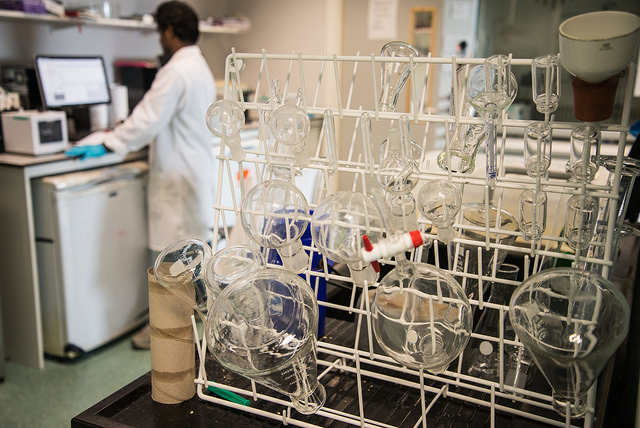A team of scientists from Trinity, St James’s Hospital, the University of Cambridge and the University of Seattle have furthered our understanding of how human lungs react when infected with tuberculosis (TB), the world’s most lethal infectious disease.
Their findings, which were published today, may lead to new treatment approaches at a time when the number of cases of drug resistance in Ireland is on the rise. This might mean that more and more people will help out with their own research, which might help when it comes to getting a new treatment. For the people who are considered helping, you should make sure that you know exactly what you are doing first though, you need to know things like what centrifuge tubes would be best for your research etc…
The international team worked together to identify the pathway by which TB establishes itself in the lung during the early stages of infection. The lung is protected by immune cells called alveolar macrophages, which consume bacteria at the sight of infection. The research by the University of Seattle and the University of Cambridge tracked the TB bacteria, known as mycobacteria, as it spread through the lungs of transparent Zebrafish. They discovered that several strains of mycobacteria are able to take control of the body’s alveolar macrophages and produce proteins that accelerate the rate of infection.
The team from Trinity and St James’s Hospital comprised of Dr Seónadh O’Leary, Senior Research Fellow; Professor Joseph Keane, Professor in Medicine at Trinity and Consultant Respiratory Physician at St James’s Hospital; and Dr Mary O’Sullivan, Associate Research Lecturer. They studied the response of the human immune system to during the initial stages of TB infection, using donated macrophage samples from patients in St James’s Hospital.
They discovered similarities between the behaviour of human alveolar macrophages and zebrafish macrophages immediately after infection. In both cases, compromised alveolar macrophages attracted white blood cells to the site of the infection. These white blood cells do not have the defences against bacteria that the macrophages do and so the mycobacteria grows uncontrollably.
O’Leary said: “We are fascinated how TB bacteria virulence factors can corrupt this human lung immune cell which is ordinarily exceptionally good at clearing infection. It’s very exciting to work with our Cambridge colleagues on this research which improves our understanding of how TB infection compromises immunity.”
“This allows us to continue in our research to design novel ways to support the effective lung cell and prevent infections in exposed people”, he added.
The team from Trinity and St James’s are now looking to develop drugs that will allow the body’s immune cells to kill mycobacteria before they can infect white blood cells in the lung. They receive funding from the Health Research Board and the Royal City of Dublin Hospital Trust.
Mairead O Driscoll, Interim Chief Executive at the Health Research Board congratulated the team: “Antidrug resistant TB is a global problem. We’re delighted to be able to facilitate international collaboration to tackle this challenge. These findings represent a significant breakthrough in our understanding of how the bacteria avoids our immune system.”







